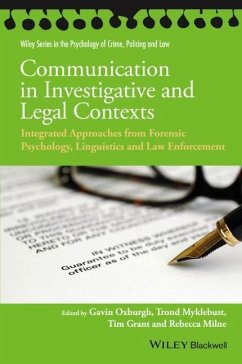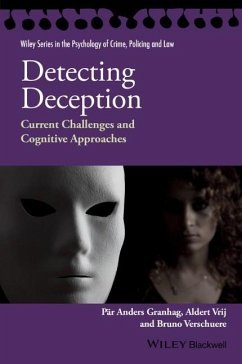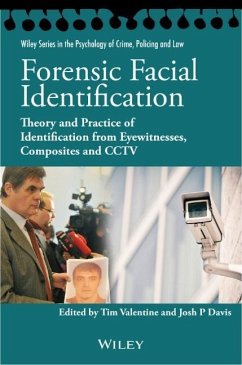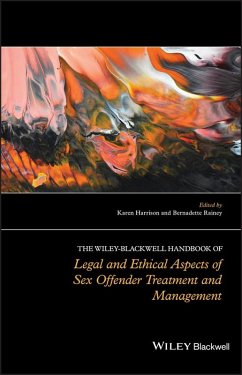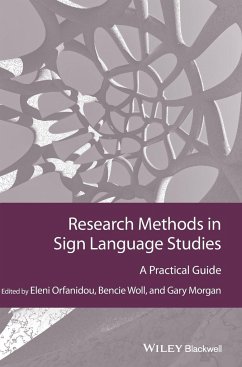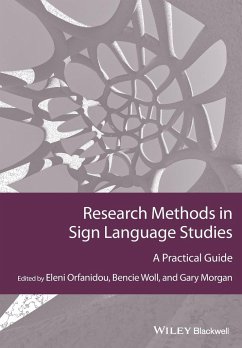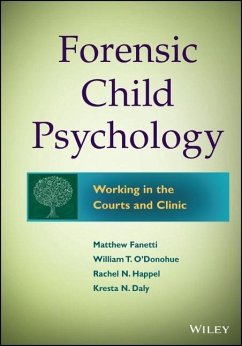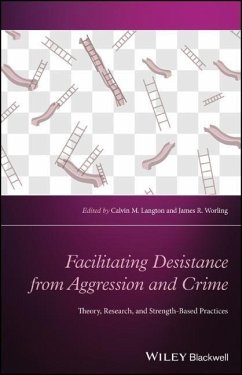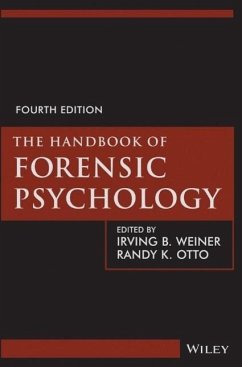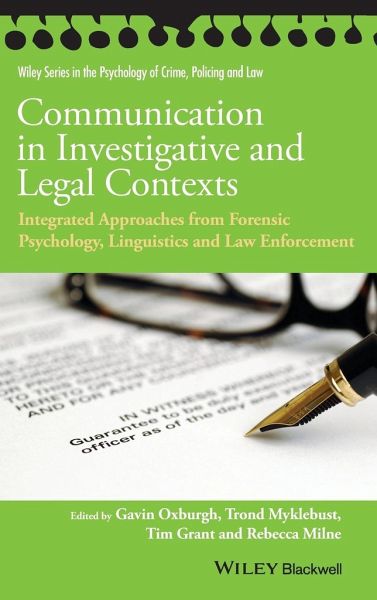
Communication in Investigative and Legal Contexts
Integrated Approaches from Forensic Psychology, Linguistics and Law Enforcement
Herausgegeben von Oxburgh, Gavin; Myklebust, Trond; Grant, Tim; Milne, Rebecca R.
Versandkostenfrei!
Versandfertig in über 4 Wochen
110,99 €
inkl. MwSt.
Weitere Ausgaben:

PAYBACK Punkte
55 °P sammeln!
Communication in Forensic Contexts provides in-depth coverage of the complex area of communication in forensic situations. Drawing on expertise from forensic psychology, linguistics and law enforcement worldwide, the text bridges the gap between these fields in a definitive guide to best practice.Offers best practice for understanding and improving communication in forensic contexts, including interviewing of victims, witnesses and suspects, discourse in courtrooms, and discourse via interpretersBridges the knowledge gaps between forensic psychology, forensic linguistics and law enforcement, w...
Communication in Forensic Contexts provides in-depth coverage of the complex area of communication in forensic situations. Drawing on expertise from forensic psychology, linguistics and law enforcement worldwide, the text bridges the gap between these fields in a definitive guide to best practice.
Offers best practice for understanding and improving communication in forensic contexts, including interviewing of victims, witnesses and suspects, discourse in courtrooms, and discourse via interpreters
Bridges the knowledge gaps between forensic psychology, forensic linguistics and law enforcement, with chapters written by teams bringing together expertise from each field
Published in collaboration with the International Investigative Interviewing Research Group, dedicated to furthering evidence-based practice and practice-based research amongst researchers and practitioners
International, cross-disciplinary team includes contributors from North America, Europe and Asia Pacific, and from psychology, linguistics and forensic practice
Offers best practice for understanding and improving communication in forensic contexts, including interviewing of victims, witnesses and suspects, discourse in courtrooms, and discourse via interpreters
Bridges the knowledge gaps between forensic psychology, forensic linguistics and law enforcement, with chapters written by teams bringing together expertise from each field
Published in collaboration with the International Investigative Interviewing Research Group, dedicated to furthering evidence-based practice and practice-based research amongst researchers and practitioners
International, cross-disciplinary team includes contributors from North America, Europe and Asia Pacific, and from psychology, linguistics and forensic practice




